STAKEHOLDER INTERVIEWSPerspectives from 15 global health leaders on GHIT's catalytic role and
Japan's transformational contributions to global health R&D
DISCOVERY
02
Mr. George Nakayama
Representative Director, Chairman and CEO
Daiichi Sankyo Company, Limited
“We saw the opportunity presented by GHIT to utilize the drug discovery technologies that are core to our R&D activities.”
What motivated your company to join GHIT?
As a pharmaceutical company, we have sought out means of contributing to global health through our corporate social responsibility (CSR) and social contribution activities. As part of these efforts, we have engaged in numerous projects that contribute to improving access to medicine and healthcare in developing countries. However, we have been faced with a limited range of opportunities to contribute to global health by utilizing our drug discovery technologies, which are core to our research and development (R&D) activities and form the foundation of our business platform.
GHIT was established to raise funds from various sectors and also to leverage the scientific and technological capabilities of Japanese companies to contribute to global health. We saw the opportunity presented by GHIT to utilize the drug discovery technologies that are core to our R&D activities. As a private-sector company, we must dedicate ourselves to the pursuit of profit. For this reason, it is difficult to put aside considerations of profitability and devote significant amounts of time and money to R&D projects purely for the purpose of social contribution, especially if the success of these projects is not guaranteed. Partnering with GHIT enables us to effectively incorporate our chemical compounds into the R&D process. Accordingly, our partnership with GHIT allows us to utilize Daiichi Sankyo’s various resources to make wider-reaching contributions to society. This is the fundamental reason we decided to become a founding partner. As a result of our partnership, we have identified promising compounds from among Daiichi Sankyo’s compound library to be used in developing anti-malarial agents. These compounds have advanced to the next preclinical stage.
> Preclinical Project Partnering with Medicines for Malaria Venture (MMV)
How does global health R&D factor into your company’s business strategy?
HIV, tuberculosis, malaria, and neglected tropical diseases are enduring global health challenges that are critical to address. Our primary business focus is to create innovative pharmaceuticals that change the standard of care, and our core business targets oncology, including immune oncology, as well as new horizon areas, such as pain management, neurodegenerative diseases, heart and kidney diseases, and other rare diseases. We do view global health as an important part of the mission for ourselves and for other pharmaceutical companies, and we are actively engaged in improving access to healthcare from a CSR perspective.
> Improving Access to Healthcare
GHIT forms a bridge between our business and our CSR activities. We have a wealth of resources, including technologies and insight, that have been gained through the process of drug discovery. It means a great deal to us when drug discovery technologies and other resources that are not be utilized in our business activities are put to use by GHIT to deliver pharmaceuticals to patients and contribute to global health.
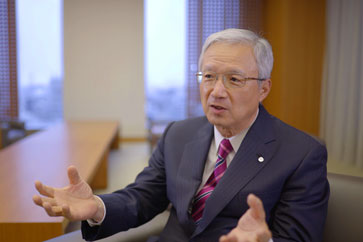
“We are proud to go beyond simply helping fund GHIT to actually contribute to global health through our drug discovery technologies and R&D activities. The inspiration and motivation we receive in return is invaluable.”
Has your company’s engagement in global health R&D delivered any new insights or lessons learned to your company?
Our compound library is unique in that we synthesize almost all compounds in-house and stock the raw materials we use in this process. We hope that GHIT’s R&D activities will be aided by our compound library. In fact, we have already produced numerous successes through our various efforts.
Although our global health initiatives are not directly linked to our business, I believe that it contributes to higher motivation for our researchers when GHIT effectively uses Daiichi Sankyo’s drug discovery technologies and R&D capabilities to move forward with the development of pharmaceuticals. It is important for our researchers to experience many such successes and to foster their ability to envision the path toward future successes and toward the creation of new drugs through these experiences. This process will no doubt help further the development of our employees, which will a positive impact on our drug discovery activities in the oncology field and in new horizon areas.
I am always trying to pinpoint exactly what motivates our employees. Thank you letters from patients are one of the clearest contributors to employee motivation. As we provide pharmaceuticals, letters received from patients include those talking about how, for example, family members were saved from Alzheimer’s disease or how a patient’s quality of life was improved, despite the fact that they did not recover completely. One specific letter described how a student was able to sufficiently prepare for their entrance examinations because our products helped them quickly recover from a five-day fever stemming from influenza.
I share such letters with our employees whenever possible. Although there are other ways of instilling motivation, such as increasing bonuses for success at work, I think that expressions of gratitude from patients and stories of the patients that have been saved are the greatest motivators for employees. These expressions and stories are major sources of pride, and the majority of the people that work in the pharmaceutical industry gain inspiration from these sources.
Successfully contributing to global health is a joyous experience. We are proud to go beyond simply helping fund GHIT to actually contribute to global health through our drug discovery technologies and R&D activities. The inspiration and motivation we receive in return is invaluable.
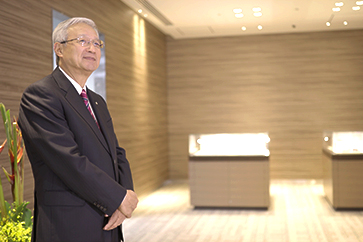
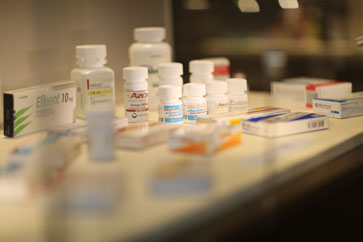
How does GHIT’s establishment impact the engagement of Japanese pharma in global health R&D?
International (non-Japanese) research institutions are also key partners for global health product development. Through our involvement in a malaria project with Medicines for Malaria Venture (MMV), we are sharing approaches and know-how with people outside of Daiichi Sankyo. In this way, GHIT serves as a kind of innovation hub, helping various companies and research institutions learn from each other while leveraging their unique technologies for global health and making all parties stronger as a result. The existence of GHIT holds exceptional meaning for this reason.
Many of the pharmaceutical products developed by Japanese pharmaceutical companies are competitive in the global market. However, Japanese pharmaceutical companies still have a long way to go before becoming major global players. This is likely because these companies have not yet formed the networks necessary to have their expertise and technologies utilized around the world.
By more directly linking Japanese techniques and craftsmanship to the type of global ideas and concepts embodied by GHIT, I think that we are certain to create great results. This combination is exceptionally promising, and I stand hopeful for the future of GHIT’s activities.
GHIT is not only supported by private-sector companies and foundations but also by the government of Japan. This is the first time such a union of private-sector companies, foundations, and government has been formed. The way in which Japan will contribute to the global society is constantly being questioned. I think it is possible that this type of union will help create tangible contributions in the future. The potential is so clear to me, and I therefore want to push products out onto the market through GHIT as quickly as possible.
“GHIT serves as a kind of innovation hub, helping various companies and research institutions learn from each other while leveraging their unique technologies for global health and making all parties stronger as a result. The existence of GHIT holds exceptional meaning for this reason.”
How can GHIT accelerate global health R&D?
Developing new drugs requires tremendous investments of time and money. The Japanese government has expressed its commitment to conducting ongoing investment in GHIT from a long-term perspective. Once commenced, it is important to continue such support. We, as a private-sector company, will also provide consistent support to GHIT.
Moreover, as GHIT’s name suggests, it is important to advance the development of truly innovative technology. If Japanese pharmaceutical companies and research institutions can contribute to global health by utilizing their innovative technology, I think GHIT can become even more capable and grow further.
Looking ahead, what are the next challenges for Japanese pharma and GHIT?
It is important for GHIT to continue contributing to the world by developing new drugs, as it has done to date. I think it is also important to raise awareness among the global community with regard to the extent to which Japanese pharmaceutical technologies and R&D capabilities are aiding society and saving lives.
Lack of public awareness or understanding regarding the best forms of healthcare and the pharmaceutical industry is something I think about every day. People are no doubt aware of how insurance fees and drug prices rise and fall. However, I do not think that the average person is very aware of how extensively the pharmaceutical industry contributes to society through medical services and drug discovery, or of the potential for the industry itself.
For example, many had not understood that millions of people in Africa were saved by the research that earned Professor Satoshi Omura, Professor Emeritus at Kitasato University, until he was awarded the Nobel Prize. I think that it is very important to raise awareness of the potential for the drug discovery technologies and R&D capabilities of companies like Daiichi Sankyo to be utilized in the field of global health and for Japan to save lives around the world in this manner.
There are still many patients suffering from severe diseases around the world, and saving them and reducing their suffering will ultimately require new drugs. It is therefore important for society as a whole to think about how to create and deliver such new drugs.
The affiliations and positions listed in this interview are at the time of publication of the interview in 2017.
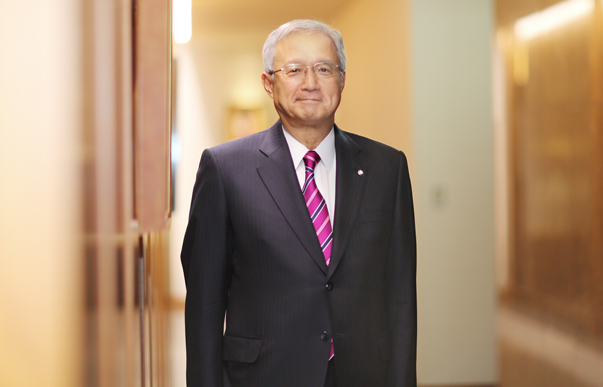
- Biography
- Mr. George Nakayama
Representative Director, Chairman and CEO
Daiichi Sankyo Company, Limited
George Nakayama is Chairman and CEO of Daiichi Sankyo Co., Ltd. He became CEO in June 2010 and Chairman in April 2017. He previously served as President and CEO since June 2010. Mr. Nakayama joined former Daiichi group as President of Daiichi Suntory Pharma Co., Ltd. upon the spin-off of the Pharmaceutical Division of Suntory Co., Ltd. in 2002. In 2006, he was appointed as Daiichi’s General Manager, Business Planning Department and from April 2007, when Daiichi and Sankyo were fully integrated into Daiichi Sankyo Co., Ltd., he took responsibility for its overseas businesses as General Manager, EU US Business Management Department followed by General Manager, International Business Management Department. Upon assignment to President of Japan Company in April 2010, he was appointed as Executive Vice President. Mr. Nakayama earned a Master of Science degree from Osaka University in 1976 and an MBA from Northwestern University in 1979.
STAKEHOLDER INTERVIEWSARCHIVES
FUNDING
-
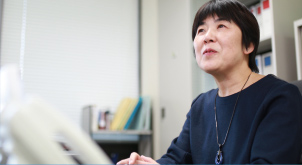
01
Dr. Naoko YamamotoSenior Assistant Minister for Global Health,
Ministry of Health, Labour and Welfare
#
-
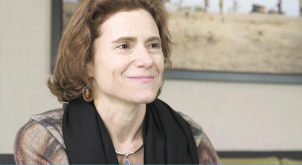
02
Dr. Hannah KettlerSenior Program Officer, Life Science Partnerships
Global Health Program, Office of the President
Bill & Melinda Gates Foundation
#
-

03
Prof. Stephen CaddickDirector, Innovations Division,
Wellcome Trust
#
DISCOVERY
-
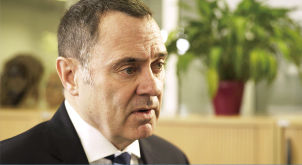
01
Dr. David ReddyCEO
Medicines for Malaria Venture (MMV)
#
-
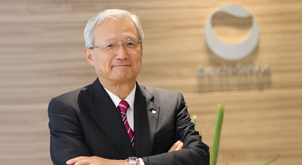
02
Mr. George NakayamaRepresentative Director,
Chairman and CEO
Daiichi Sankyo Company, Limited
#
-
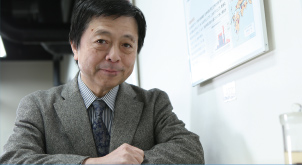
03
Prof. Kiyoshi KitaProfessor Emeritus, The University of Tokyo
Professor and Dean, Nagasaki University School of Tropical Medicine and Global Health
#
DEVELOPMENT
-

01
Mr. Christophe WeberRepresentative Director, President and CEO
Takeda Pharmaceutical Company Limited
#
-
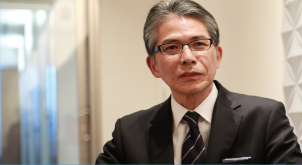
02
Mr. Yoshihiko HatanakaRepresentative Director,
President and CEO
Astellas Pharma Inc.
#
-
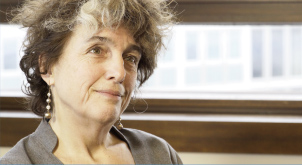
03
Dr. Nathalie Strub WourgaftMedical Director
Drugs for Neglected Diseases initiative (DNDi)
#
ACCESS
-

01
Dr. Jayasree K. IyerExecutive Director
Access to Medicine Foundation
#
-
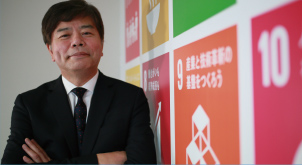
02
Mr. Tetsuo KondoDirector
United Nations Development Programme (UNDP)
Representation Office in Tokyo
#
-
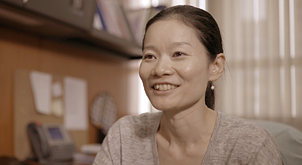
03
Dr. Aya YajimaTechnical Officer
Malaria, other Vectorborne and Parasitic Diseases Unit
Division of Communicable Diseases
World Health Organization Western Pacific Regional Office
#
POLICY
-

01
Dr. Mark DybulFormer Executive Director
The Global Fund to Fight AIDS,
Tuberculosis and Malaria
#
-

02
Dr. Seth BerkleyCEO
Gavi, the Vaccine Alliance
#
-
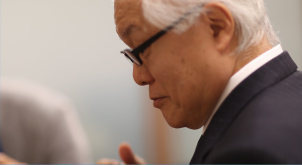
03
Hon. Prof. Keizo TakemiMember of the House of Councillors of Japan
Chairman, Special Committee on Global Health Strategy
of the Liberal Democratic Party's Policy
#

